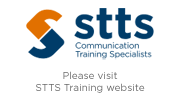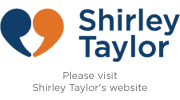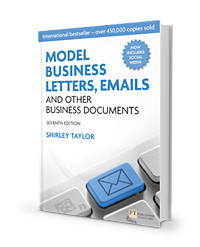


from Shirley Taylor
- Learning more about effective communication will help us all adapt to changing environments, and will increase your chances of success in this highly competitive world.
- Shirley Taylor - The greatest challenge you face will probably not be the technical side of your job (your expertise) but rather interacting with other people.
- Shirley Taylor - Make it an on-going process to work on your communication skills. It is better to start now rather than wait until something goes wrong!
- Shirley Taylor - In any job or business, relationship building must be your most important objective. Quite simply, the quality of the relationship will determine the quality of the product or service!
- Shirley Taylor - If I want to improve my relationships, I must practice humility. It's a strength, not a weakness.
- Shirley Taylor - Always use a singular verb with collective nouns, eg The furniture is..., the equipment was..., the luggage is...
- Shirley Taylor - Passive voice puts a distance between you and your reader. Active voice gives you a writing focus, and is much more personal and natural.
- Shirley Taylor - Read sentences out loud to hear pace and rhythm. This will also help you to get the punctuation in the right place.
- Shirley Taylor - You will be less likely to make subject-verb errors if you keep your sentences short.
- Shirley Taylor - A comma represents a short pause. When reading any written messages, don't just see words on paper (or screen) – imagine you are reading the sentences out loud, as though you are speaking to your audience. This will help you to place the commas and full stops correctly.
- Shirley Taylor - Putting a comma in the wrong place is one of the most common problems in today's writing. Read sentences out loud to hear the pace and rhythm. This will help you to get the punctuation in the right place.
- Shirley Taylor - If you're unsure whether to put an apostrophe in it's, try replacing it's with it is. If it sounds OK that way, then use the apostrophe.
- Shirley Taylor - When figuring out where to put the apostrophe when something is possessive, try putting a circle around the owner. Your apostrophe should not be inside the circle.
- Shirley Taylor - Good writing is like any other endeavour. The more you put into it the more you will get back.
- Shirley Taylor - Imagine the reader sitting in front of you. If you find yourself writing something you wouldn't say to him/her, then change it.
- Shirley Taylor - Plain English is not only faster to write and read. It also enables you to get your message across more often, more easily, and in a friendly way.
- Shirley Taylor - Put some life into your business writing by using a natural, relaxed, friendly style, as though you are having a conversation. Instead of using yesterday's jargon, use a style that is proactive, stimulating and interesting – writing that reflects your personality.
- Shirley Taylor - Today' business language should be proactive, stimulating interesting and, most of all, it should reflect your personality.
- Shirley Taylor - If you want someone to do something, start your sentence with 'Please' and follow with the active verb. Don't try starting sentences with 'Appreciate'. It will never be correct.
- Shirley Taylor - Using positive words and positive phrases will enhance the tone and improve the effectiveness of your writing.
- Shirley Taylor - There is nothing wrong with using 'we' and 'I' in the same message, if it's appropriate.
- Shirley Taylor - When you are writing, ask yourself whether you would say this if you were speaking to the recipient. Eliminate useless jargon by writing as you would speak.
- Shirley Taylor - The key to good business writing is to write in a natural style, as if you were having a conversation.
- Shirley Taylor - Brief is in. Our digital age values short words, short sentences, short paragraphs. We want to read and understand quickly.
- Shirley Taylor - Double your chances of getting a message read by cutting your message by half.
- Shirley Taylor - Make documents visually appealing and reader-friendly by using headings, numbered points and bullets where appropriate.
- Shirley Taylor - Using open punctuation will remove a lot of the clutter from your writing and presentation.
- Shirley Taylor - People will judge you on how you write – so it pays to learn how to write well!
- Shirley Taylor - Set a high standard in all your correspondence. High standards in correspondence suggest a high standard in business generally.
- Shirley Taylor - A well-written message that looks and sounds professional will make it easier for people to want to do business with you. It will help people feel good about communicating with you. It will help you to achieve the right results.
- Shirley Taylor - Use email appropriately to enhance your reputation and your organisation's image.
- Shirley Taylor - Once your message is sent, it may be read by the recipient within seconds. You cannot call it back for second thoughts. So proofread it carefully before you click 'send'.
- Shirley Taylor - What you put in your subject line can mean the difference between whether your message is read right now, today, tomorrow, next week, or never.
- Shirley Taylor - The Internet has made it possible for us to communicate with people from all over the world. The only way those people can form an opinion of us is by looking back at the way we write. Don't risk ruining your credibility with one swift click of the 'send' button.
- Shirley Taylor - When you discuss something in person or on the telephone, you can get to the root of the issue much quicker and resolve any problems so much faster.
- Shirley Taylor - Personalise each message and craft your messages around the relationship that you are building with that individual.
- Shirley Taylor - Sometimes it's not what you say that's important. It's how you say it. This is the case in email too.
- Shirley Taylor - In your emails, use a natural language, in a conversational style, just like you would if you were speaking.
- Shirley Taylor - Perception is the only reality on email. It's your choice whether you want to be perceived as educated and courteous. If you simply don't care, then that will be obvious too.
- Shirley Taylor - You could get your job done by just going through the motions without giving anything extra. But by giving a little extra in your day-to-day work, your contacts will feel better and you will feel better too. These principles are not only good for business, but they prove an enjoyable and satisfying way to work.
- Shirley Taylor - If you are attending a meeting or visiting a client, you would make sure you are suitably dressed. Similarly, you must make sure you present yourself appropriately online too. Does your email look good? Have you checked to make sure there are no spelling errors? Will it make a good first impression?
- Shirley Taylor - Identify with your reader, appreciate their feelings, and use words they will understand, written in an appropriate tone.
- Shirley Taylor - Don't use capitals in email messages. They imply SHOUTING and AGGRESSION, they are more difficult to read, and they are not polite.
- Shirley Taylor - Effective communication gives a professional impression of you and of your organisation. Effective communication helps to get things done.
- Shirley Taylor - When you send an email, it is your responsibility to make sure it is opened, read and acted upon. Composing a clear and specific subject line will help you to achieve this aim.
- Shirley Taylor - If you want to improve your electronic rapport with customers and colleagues, if you want to enhance your credibility, your reputation and your productivity, remember – it's not a computer you're talking to. It's a real live human being.
- Shirley Taylor - Not everyone will enter your site at the home page. They may follow a link to a specific page. So make sure on every page there is a clear link to your home page, a guide to pages on your site, basic information about your organisation or specialism, plus contact details.
- Shirley Taylor - Before you hit 'send, or 'apply' or 'post', read what you wrote wearing the hat of the reader. Grammar, spelling and punctuation are important for readability as well as your reputation.
- Shirley Taylor - Remember this quote from Maya Angelou, "People will forget what you said, people will forget what you did, but people will never forget how you made them feel".
- Shirley Taylor - It's or Its? It's (with an apostrophe) always says either it is or it has. It never says anything else.
- Shirley Taylor - Did you know that the Romans started the practice of missing out vowels to save the cost of the messenger who usually charged per letter? This is much like what teenagers are doing today to save the cost of sending an extra text message.
- Shirley Taylor - If your company is to survive in business today, your aim should be to exceed customer's expectations, even when their expectations continue to rise.
- Shirley Taylor - Put some zip into your display and formatting by getting rid of clutter.
- Shirley Taylor - Successful e-marketing is not just about creating a website. It is about using the power of the Internet and the wonders of email to create, build and maintain prosperous and profitable customer relationships online.
- Shirley Taylor - Right from the start of your business dealings, focus on building a great relationship. If you get this right first, the rest will be much easier.
- Shirley Taylor - It always helps when you consider the four-point plan for all your writing: Introduction, Details, Action and Close.
- Shirley Taylor - Remember to use the apostrophe correctly, as shown here: ladies', men's and children's raincoats.
- Shirley Taylor
- To develop a diplomatic writing style, imagine the person is standing in front of you and you are speaking to him/her.
- Shirley Taylor - Even a quotation can be structured according to a four-point plan: Introduction, Details, Action and Close.
- Shirley Taylor - When you give a potential client everything they need, this will create a favourable impression and help to build goodwill.
- Shirley Taylor - Good writers learn to present the positives rather than the negatives.
- Shirley Taylor - Notice closes like 'I look forward to working with you'. These will help to develop the relationship, which should always be a key aim in business.
- Shirley Taylor - Take care to use a tone that would not offend your reader.
- Shirley Taylor - Take pride in composing effective messages that are structured logically.
- Shirley Taylor - Some companies now accept a pdf invoice sent via email; others require a hard copy to be mailed. It's always best to check first.
- Shirley Taylor - Avoid old-fashioned phrases or overpoliteness. Say 'Please' instead of 'Would you please' or 'I should be grateful'.
- Shirley Taylor - Never be unsympathetic, condescending or rude. Always be sincere and clear.
- Shirley Taylor - Your colleagues, your superiors and your peers will judge you on the quality of your written communication. Make sure you give a good impression.
- Shirley Taylor - Prepare your internal correspondence with as much care as external messages. Internal staff are your customers too.
- Shirley Taylor - Everyone is busy. Show some respect for your colleagues by making sure your internal messages are clear and concise, and by proofreading carefully, before you hit 'send'.
- Shirley Taylor - Emails that finish with 'Best' and 'Cheers' are great alternatives to 'Regards', which I feel is overused. Why not come up with your own closing?
- Shirley Taylor - I prefer displaying the date as day/date/month/year, ie Tuesday 10 August 2013. If you prefer to put the comma after the day, that's also fine. You may prefer to use Tuesday August 10th, 2013. This is also fine. Just be consistent.
- Shirley Taylor - Don't begin a sentence with 'Please be informed' or 'Please be advised'. These phrases are passive as well as outdated.
- Shirley Taylor - Always use past tense for minutes, with third person and reported speech.
- Shirley Taylor - When you use automatic numbering in your Word program, you'll find that it does not automatically align the tenth point neatly. I always change this because it looks so much better when all the numbers are aligned.
- Shirley Taylor - When writing to someone for the first time, remember: there is no second chance to create a great first impression.
- Shirley Taylor - Don't use too many different fonts or sizes in your reports, as it will not be attractive and could confuse the reader.
- Shirley Taylor - Make sure all information in your report is well-researched and substantiated.
- Shirley Taylor - Always consider carefully the format and section headings of your report. You must make sure they are relevant to the content as well as the intended audience.
- Shirley Taylor - Check out The Plain English Guide to Writing Reports at www.plainenglish.co.uk
- Shirley Taylor - Good writers learn to choose their words very carefully and get the tone just right.
- Shirley Taylor - Confine your complaints to statement of facts, and explain your disappointment, rather than showing too much emotion or expressing anger.
- Shirley Taylor - Many people think that you should not say thank you to someone who has complained. But why not? They have given you a chance to put something right and retain goodwill.
- Shirley Taylor - Remember, the aim of all your communication today must be to build relationships.
- Shirley Taylor - Avoid waffle. Read through your message and tidy up anything that is repetitive and out of flow.
- Shirley Taylor - Use sub-headings, numbers and bullets to make your handouts attractive and easy to follow.
- Shirley Taylor - In direct mail letters or emails, address the reader directly by using 'you' to get their attention and make it more personal.
- Shirley Taylor - Put yourself in the reader's position. Is there anything unclear in your message? Will they have to ask questions? Are misunderstandings possible? If so, revise.
- Shirley Taylor - Be concise in your writing. Using short words and simple expressions will help you.
- Shirley Taylor - Avoid 'hype' (hyperbole), eg totally fantastic, truly awesome, extraordinary, incredible, astounding.
- Shirley Taylor - In sales letters, stress the benefit of the product rather than the features.
- Shirley Taylor - In your sales letters, don't talk badly about your competition. Let your product sell itself.
- Shirley Taylor - Errors lurk in the middle of long sentences. Keep them short!
- Shirley Taylor - In your press release, remember that you are giving information, not just selling something. You must aim to show the editor or reporter the newsworthiness of a particular event, service, product or person.
- Shirley Taylor - A press release is not an advertisement. Be sure to write as though you are the editor of the newspaper speaking, in third person.
- Shirley Taylor - It's a good idea to research actual press releases on the Internet to get a feel for the tone, the language, the structure and the format of press releases. Many organisations have a media or press section.
- Shirley Taylor - Always look critically at everything you write, and remember to proofread carefully.
- Shirley Taylor - When compiling a list, it's important to make sure your listed items are parallel in structure. For example, if one item begins with a verb, make sure they all do.
- Shirley Taylor - If you are not getting any comments on your posts, it should tell you something. Are your posts clear and concise? Do they show any emotion? Are they warm, positive, engaging? Do they invite interaction? The level of engagement is possibly the best rating of the quality of your posts.
- Shirley Taylor - Don't get into the habit of abbreviating words so often that you forget to spell out the words correctly when necessary.
- Shirley Taylor - If you have too many sentences beginning with the same word, like 'I' or 'We' or 'Please', you need to be creative and restructure. And remember, just because you have two sentences beginning with 'Please', it's not an excuse for you to change one to the outdated 'Kindly'!
- Shirley Taylor - Always check the original enquiry carefully to ensure you have answered every point, and that all the information is correct. This will avoid problems later.
- Shirley Taylor - Use words like 'Unfortunately' to soften the tone, and use 'Please' when you are asking the reader to do something.
- Shirley Taylor - Please respect other people's time and only forward Emails to the people who really need to see them.
- Shirley Taylor - Correct your mistakes before you hit the 'Send' button. You'll look a whole lot better to your readers if you get it right the first time.
- Shirley Taylor - An external Email message is as an ambassador for your organisation just the same as a business letter.
- Shirley Taylor - Your Email readers will be looking at the words, the language as well as the tone you use to convey your message.
- Shirley Taylor - To achieve your objective and get the right results from your Emails, you must pay attention to much more than the words you use.
- Shirley Taylor - Never underestimate the importance of body language, especially eye contact (with the other person, not with your Blackberry!)
- Shirley Taylor - Consider the 3 G's of positive status updates: be genuine, generous and grateful.
- Shirley Taylor - Email should be seen as a tool to enhance communication rather than replacement for communication.
- Shirley Taylor - Adapt your communication style to make Email work for you, not against you.
- Shirley Taylor - Switch off your Email alert when you need to concentrate or focus on an important project.
- Shirley Taylor - Consider if a quick word with a colleague or a simple phone call to a client could resolve an issue more efficiently than using Email.
- Shirley Taylor - Keep your messages as short as possible without letting meaning suffer, and use simple words instead of long ones.
- Shirley Taylor - Pay attention to the tone, language and structure of Emails. All these things will impact your reader.
- Shirley Taylor - When Emailing across cultures, keep your language simple and your sentences short.
- Shirley Taylor - Your Email readers will be looking at the words, the language as well as the tone you use to convey your message.
- Shirley Taylor - To achieve your objective and get the right results from your Emails, you must pay attention to much more than the words you use.
- Shirley Taylor - Don't check your sms or Emails in formal meetings, or sneakily try to send an sms thinking that no one will notice. They will!
- Shirley Taylor


Read extracts from Shirley's
bestselling book now.
|
Workshops with Shirley |
| Shirley's Video Series | |
| Watch Shirley's A-Z of Business Writing Blunders. Each short video covers one common mistake made in business writing – from A to Z! You'll learn about some of the many common mistakes people make in their business writing and how you can avoid them. Check out Shirley's A-Z video series now. |
|
| Shirley's Blog | |
| Read Shirley's blog with short articles on business writing, email, communication, personal effectiveness, presentation skills, teamwork, and much more. | |
| Subscribe to Shirley's page on Facebook | |
| LIKE Shirley's Facebook page and you'll benefit from the daily snippets, tools, tips, photos, and much more. LIKE Shirley on Facebook now. | |
| Follow Shirley on Twitter | |
| FOLLOW Shirley on Twitter @ShirleyTaylorST. You'll get lots of updates, pointers and tips plus updates and reminders. FOLLOW Shirley now. | |
| Subscribe to Shirley on YouTube | |
| SUBSCRIBE to Shirley's YouTube channel for her latest videos, updates, news and tips on how you can improve your communication and business writing skills. SUBSCRIBE now. | |
| Success Boosters from Shirley | |
| Get Shirley's free 10-week e-courses of weekly reminders and good practice guidelines. Sign up today and you'll receive one e-mail booster a week for 10 weeks to remind you of some key points. | |
| « Back to Model Business Letters main page | Back to top |
|
|
|
| © Shirley Taylor | www.shirleytaylor.com |